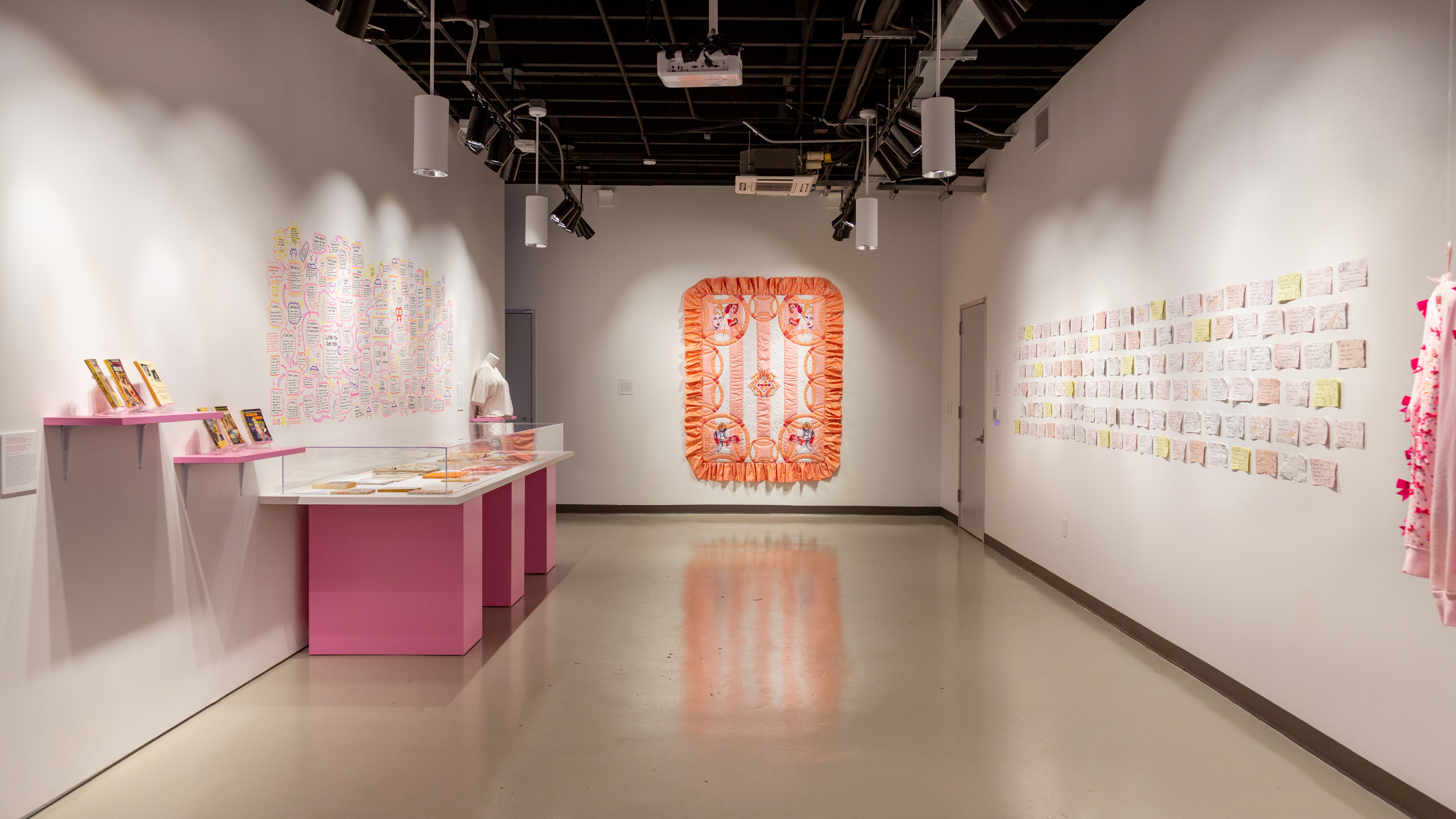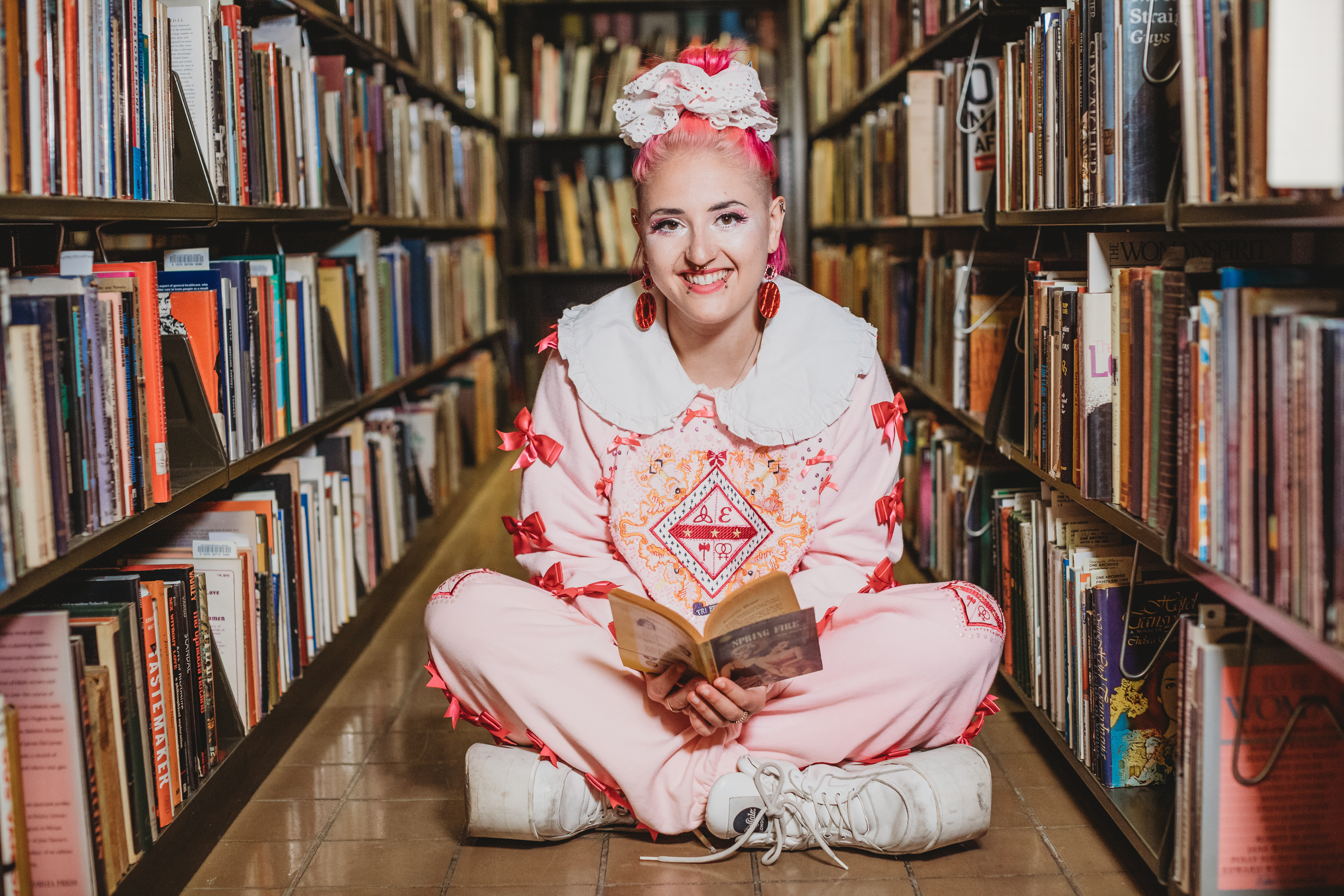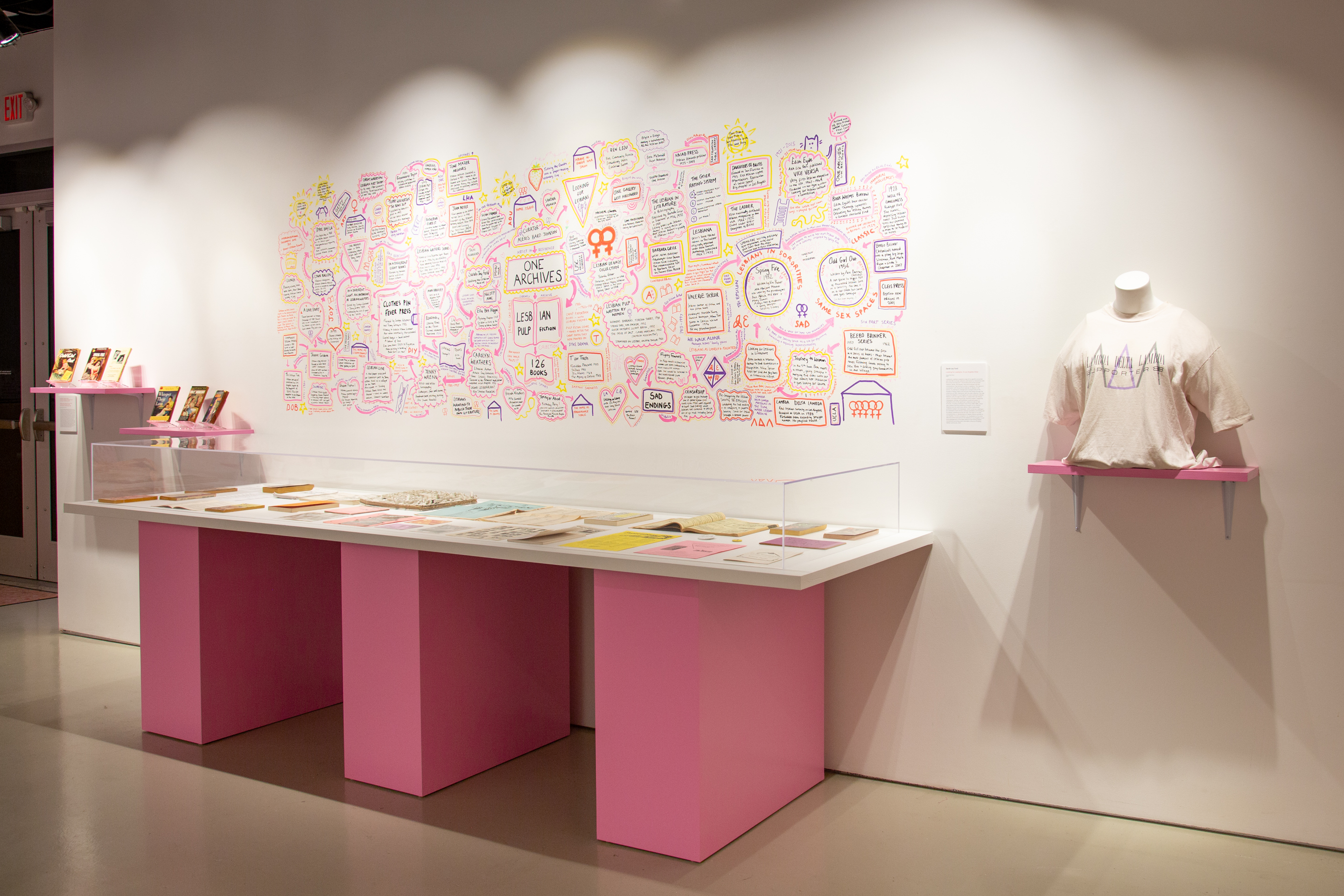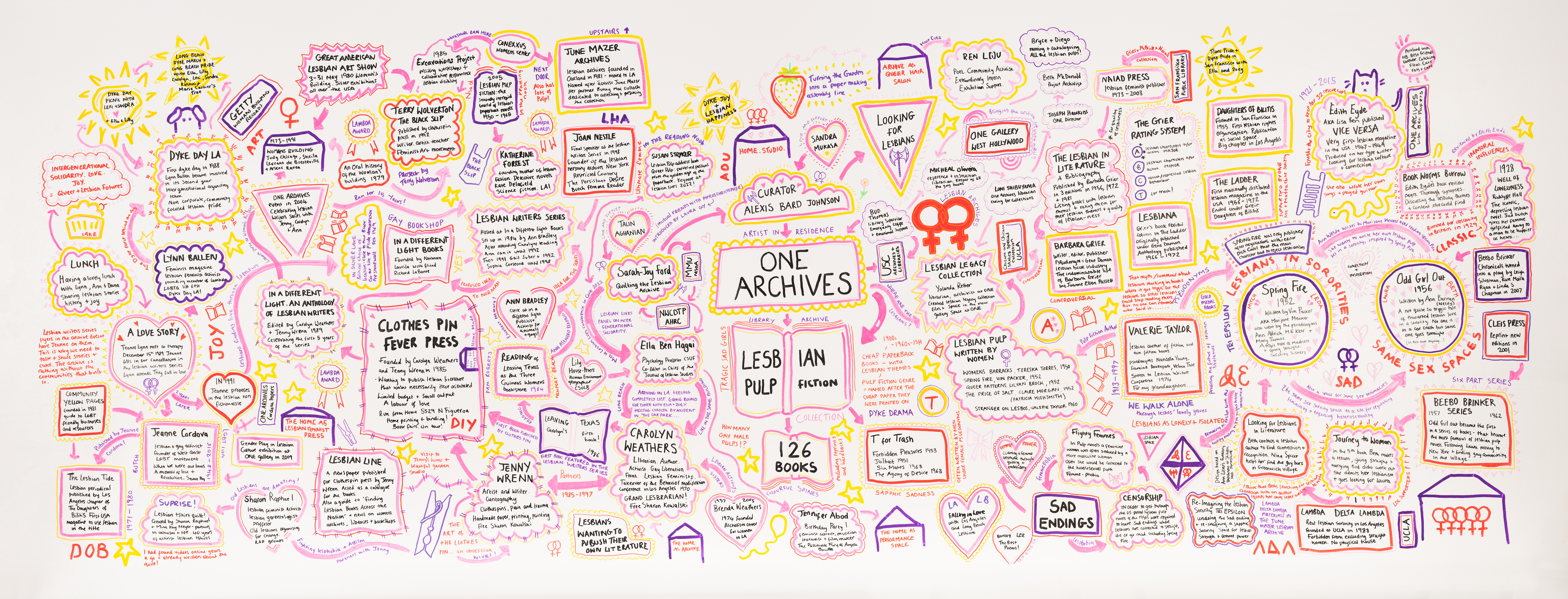Looking for Lesbians
A Researcher-Led placement that uses quilting as a methodology for re-visioning lesbian archival material.

Partner overview
ONE National Gay & Lesbian Archives at the USC Libraries is the largest repository of Lesbian, Gay, Bisexual, Transgender, Queer (LGBTQ) materials in the world. Founded in 1952, ONE Archives currently houses over two million archival items including periodicals, books, film, video and audio recordings, photographs, artworks, organisational records, and personal papers.
Research Team
Sarah-Joy Ford, Manchester Metropolitan University
Alexis Bard Johnson, Curator, ONE National Gay & Lesbian Archives
The Project
The One Archives at USC is the largest collection of LGBT materials in the world. This project aimed to highlight some of the important lesbian collections at the archive, in particular the lesbian pulp fiction collection. The project responded to a lack of research and public engagement with the collection of lesbian pulp fiction novels in the ONE Archives collection within the context of a comparative disparity between the much larger collection of gay male pulps.
This challenge was addressed through a practice based research methodology; which included an artist residency within the archive, the production of new artworks in relationship to the collection and the dissemination of this new research through an exhibition, title Looking for Lesbians, and accompanying public programming. The exhibition was the key vehicle for disseminating the research to the public, which included artworks, archival material and a hand painted ‘atlas’ of the artist’s encounter with the ONE Archives collection.
Working closely with Curator Alexis Bard Johnson, Sarah-Joy undertook archival research in the collections originally focusing on the lesbian pulp collection, and into the reception, dissemination, and categorising of these books. Although the project began with a tight focus on lesbian pulp novels, the project later expanded to examining the legacy of these pulp novels, and how this marked a shift in lesbian literature toward women’s grassroots publishing. The Atlas made visible some of the rich and connected histories in Los Angeles, highlighting publicly important collections held at ONE eg. Clothespin Fever Press founded by Carolyn Weathers and Jenny Wren.
Outcomes
This project was one of the first in a new series of artist residencies at the ONE Archives, acting as a pilot and assisting in the development of an established artist-research residency scheme.
The project highlighted the lesbian pulp fiction collection, and other important collections including Clothespin Fever Press through the Looking for Lesbians Exhibition, which included the display of archive materials. In so doing it contributed to the development and strengthening of the ONE Archive’s relationship with lesbian communities, in particular through the in conversation event, and to other archives.
The exhibition and accompanying events brought the ONE Archives to new audiences, through public programming, and in particular the window installation visible from the street in WeHo.
For Sarah-Joy, the project had a strong impact on her practice based research allowing her to develop new site specific methodologies for working with archives, mapping her practice and disseminating to international audiences, opening to the possibility of future iterations of the model developed.
Sarah-Joy has energized our collection and serves as a model for future collaborators. Some of her works remain in the collection and will be available to researchers as well as for future exhibitions. As a result of this project, many donors, researchers, students, and community members have a new or renewed interest in the work of the ONE archives. We will use this momentum and this project as a model to host similar endeavours that so gracefully engage with collections, history, and art. On a one-to-one level, the collaboration and mutual sharing of knowledge and joint problem solving between myself and Sarah-Joy exceeded my expectations. Ford was a joy to work with on this entire project and I admire the dedication, content expertise, and creativity she brought to this project. Through her practice and length of stay, she also influenced the rest of the staff at the ONE Archives through asking questions about their work and the collection and offering ideas about what to collect and other possible engagements. On a more local level, the exhibition Looking for Lesbians that we created together was wildly successful drawing a varied audience from seasoned patrons of ONE to new students discovering our existence and collection for the first time. Through programming, we were able to extend this reach, add new pieces of information and objects to the collection, and deepen relationships between ONE and the community. This was a perfect fit between researcher and partner from start to finish. I would recommend this type of PhD collaboration wholeheartedly to other partners. If each party comes to the project with an open mind and mutual respect, many exciting projects are possible.
Alexis Bard Johnson / ONE Archives Curator


space

Getting to know the lesbian community in Los Angeles and Long Beach represented in the atlas, was the real highlight of the project. It cemented my commitment to working collaboratively and ethically with my community to find new ways of telling more complex stories from lesbian archival collections. The exhibition felt like a significant representation of my expanding quilting practice, within a deeply site specific encounter with the collections at ONE Archives. I have future aspirations to publish material from the project, and we are also beginning discussions on future iterations of the project internationally. I would really recommend the Placement scheme to other researchers as it allowed me to put my PhD methods into practice collaboratively in the sector, and creating the groundwork for future projects.
Sarah-Joy Ford / Artist in Residence
In the media
- See more images of the exhibition on Sarah-Joy’s website: https://sarahjoyford.com/projects#/looking-for-lesbians/ and on the ONE archive’s website: https://one.usc.edu/exhibition/looking-lesbians
- Looking for Lesbians: conversation with Ann Bradley, Carolyn Weathers and Jenny Wren. This event brought together some of the key lesbian literary figures in Los Angeles and was shared to digital audiences through instagram live and YouTube: https://m.youtube.com/watch?v=pZ07f4kpe9s
- Numerous online magazine articles were published including by the WEHO Times, Los Angeles Blade and The Advocate (including an interview): https://www.advocate.com/books/2022/8/05/looking-lesbians-one-archives-explores-lesbian-pulp-fiction
- Lesbian Literature panel talk: Sarah-Joy and Curator Alexis were invited to contribute to a panel for GAZE international film festival in Dublin following a screening of the documentary ‘In Her Words’: https://ifi.ie/film/gaze-in-her-words-20th-century-lesbian-fiction/
This project was completed as part of the NWCDTP Placement scheme (Researcher-Led), between May and August 2022 (full time).
